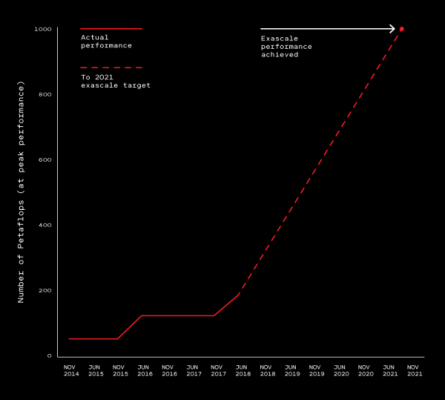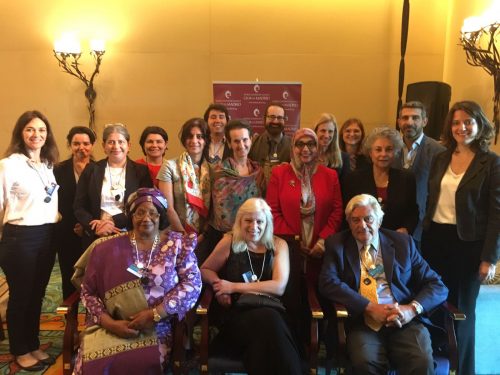
by BGF | Jul 16, 2018 | News
AI is reshaping the world, to the extent that the current liberal democracy might be replaced with digital authoritarianism. Is this an incoming struggle between liberal democracy and digital authoritarianism?

The two usual themes of AI dominance in the world includes AI dominating humans and causing disasters, or AI replacing humans in every area of society. There is another approach that AI is reshaping the world and that the current liberal democracy might be replaced with digital authoritarianism.
Authoritarianism has been believed to lead to stagnation in the long run, but AI promises to turn the table, offering a way for economically advanced countries to enrich their citizens’ lives while maintaining control over them. This model has been seen in some countries, China being a prime example since it has begun to carry out a digital authoritarian state by using machine learning to surveil its populations and creating a “social credit system”. Several countries have followed China’s lead since then. Similar to the competition between fascism, democracy and communism in the twentieth century, the struggle between digital authoritarianism and liberal democracy is reshaping the globe.
Either way, the world will be reshaped, humans at the same time are getting ready to cope with it as Michael Dukakis Institute for Leadership and Innovation (MDI) is working on MDI’ AIWS initiative – the AIWS 7-layer Model to ensure AI’s development is made for the good of humanity.

by BGF | Jul 16, 2018 | News
In the conversation with business executives in Industry 4.0 Forum held on 12th and 13th of July, Vietnamese Prime Minister Nguyen Xuan Phuc put forward his interests and strategy for Vietnam.

Vietnamese Prime Minister (center) and MDI’s Director Nguyen Anh Tuan (standing fourth from the left, first row), with other Vietnamese leaders and experts.
On July 12th and 13th, the Board Central Economic and the Government of Vietnam hosted a platform on Economic breakthrough strategy in the era of Industry 4.0 with the presence of many Vietnamese leaders, economists and innovators in technology.
Prime Minister Nguyen Xuan Phuc recommended Vietnam take the first steps in applying 4.0 technologies such as: cloud computing, robots, big data, artificial intelligence in services and agriculture, etc.
According to Prime Minister, Vietnam is considered a start-up nation with 3,000 start-ups and an ideal place for foreign investment, which is an appropriate environment to make use of technologies.
“The most important thing is not only to raise people awareness but also to come up with a strategy for Vietnam to succeed in the era”. He indicated the need of expertise and qualified human resource in order to successfully bring Industry 4.0 to Vietnam.
Towards that aim, on July 25th in Hanoi, some members of MDI, including Director Nguyen Anh Tuan, will have a conference to discuss breakthrough strategy for Vietnam’s economy.

by BGF | Jul 16, 2018 | News
On July 25th, Vietnam CEO Summit 2018 will take place in Hanoi with the participation of MDI’s Director Nguyen Anh Tuan and Prof. Jason Furman, who was named by President Barack Obama as Chairman of the Council of Economic Advisers. The Summit is expected to bring an innovative and practical approach to AI in Vietnam.

Vietnam CEO Summit is an annual event for CEOs of top businesses in Vietnam to discuss the future of regional economy, including opportunities and risks. This year’s Summit will take place on July 25th at Sheraton Hanoi Hotel with the theme: The Age of Artificial Intelligence and Vietnamese Enterprises: Implications from Harvard Case Studies and the World Business Ideals.
This year, the Summit welcomes world leaders and innovators to discuss AI and strategy for AI economy in Vietnam. In this event, Mr. Nguyen Anh Tuan – Director of MDI and Professor Jason Furman – Chairman of the Council of Economic Advisers (CEA), Obama’s advisor during his presidency, are going to present on AI economy for Vietnam, including strategy as well as execution and implementation of the solutions. With Governor Michael Dukakis, Prof. Thomas Patterson and Prof. Nazli Choucri, they have been working together on the report of the breakthrough strategy to take Vietnam to a new prosperous age.
Other guest speakers are leading innovators in the AI such as Minister Nguyen Chi Dung – Ministry of Planning and Investment in Vietnam, Governor Michael Dukakis – Former Governor of Massachusetts, Chairman of MDI, Dr. Kazuo Yano – Chief Engineer of Hitachi Group, Dr. Masahiro Fukuhara – CEO of Instution for a Global Society (Japan), and Prof. Nazli Choucri – MIT.

by BGF | Jul 16, 2018 | News
The two nations are in a technology race to create a supercomputer that could result in major advances in many fields.

Reported by MIT Technology Review, last month, the US Department of Energy (DOE) unveiled the world’s fastest supercomputer called Summit. Thus, a new goal must be set.
The next goal is to create exascale computing-referring to computing systems capable of at least a billion calculations per second in the next few years. With such phenomenal power, it will facilitate industries and enable researchers in many field to expand remarkably. The competition for technological leadership between China and the US started.
China declared their plan to produce one exascale machine by the end of 2020, they have been working on three prototypes of this machine.
The DOE of the US made a proposal worth up to $1.8 billion for two exascale computers between 2021 and 2023.
Both China and America are using all their resource for exascale machines. China has teams working on some 15 application areas, while in the US, teams are working on 25, including applications in fields such as astrophysics and materials science.
Both countries are funding work on software, data processor, energy consumption, and chips for the machine. While there is plenty of national pride behind this competition, it should be kept in mind that, what matters is how it is used to solve the world’s problems. Technology should be developed with ethical standards. It is fortunate that in such a fast pace of development human kind is witnessing, there are institutions are working on moral issues of technology as well. For instance, BGF and MDI are currently developing the AIWS initiative- especially the AIWS 7-Layer Model to ensure the well-being of humans.

by BGF | Jul 16, 2018 | News
AI is offering huge opportunities to industries, it’s our choice to change or not.

The rust belt in the US’s heartland- Pittsburgh is witnessing a huge transformation, Pittsburg was once a land of facilities of steel and coal, structures of coke, now they are a fading memory. The old steel site called Hazelwood Green has now become a test area for Uber’s self-driving cars; the former coke works – Mill 19 will be Advanced Robotic for Manufacturing Institute by the next spring. According to an article on MIT Technology Review, Pittsburgh is reinventing, using advances in automation, robots and artificial intelligence.
Billions of dollars from Silicon Valley have been invested in the city making it “a Robot belt”. In spite of all the changes, Pittsburgh’s economy is facing many problems. In the last decade, over 70,000 people from age 35-54 left the region. Automation and robots have certainly wiped out many jobs, it is calculated by Daron Acemoglu at MIT, for every robot, six jobs are lost, automation is changing work significantly although the exact number of a jobs lost will depend on the costs machines. Regarding new jobs, the number remains uncertain, the debate over the impact of automation is controversial but the location of jobs and kind of work people do are changing and causing difficulties to local populations and economies.
Turning to Pittsburgh’s case, the city is being transformed by new, young people working in AI and robotics, says Andrew Moore- dean of computer science at Carnegie Mellon University (CMU). In addition, Amazon is pledging 50,000 jobs and $5 billion in investment. If Amazon invests in Pittsburgh, it will be a solution for people’s jobs here.
The development of AI should be carried out slowly to ensure the world can catch up with the pace. It is essential to pay attention to ethical implications and keep the advance of AI under control. BGF and MDI are currently developing the AIWS 7-layer Model – an outstanding model for developers to follow to guarantee the future of AI.

by BGF | Jul 16, 2018 | News
German Chancellor visited China to strengthen international ties at the tech-hub in Shenzhen. She called for better data security in China.

According to Deutsche Welle’s article, in May, German Chancellor Angela Merkel had a two-day trip to China to improve ties with China and to seek greater market access for German businesses in China. At the end of her visit, she called for better data protection for German firms in Beijing in the upcoming time. She critically spoke of China’s security law, emphasizing its lack of protection, especially of intellectual property and human rights. The reason for this statement is one of the laws in China, taking effect since June 2017, requires firms to keep data on servers in China. This might pose a threat for German automakers during the data collecting progress for autonomous cars, as the data collected needs to be kept confidentially.
On December 12th, 2015, Chancellor Angela Merkel was honored as the World Leader for Peace, Security and Development by MDI with her contribution for the world’s peace and development.

by BGF | Jul 16, 2018 | News
A new initiative called “Education for Shared Societies” is being developed in the partnership of World Leadership Alliance – Club de Madrid (WLA- CdM) and the Varkey Foundation.

WLA-CdM, one of BGF and MDI’s closest partners in developing the AIWS 7-layer Model, partnered with the Varkey Foundation and kicked off “Education for Shared Societies” with the purpose to channel the collective knowledge of multiple fields to highlight the role of education in building peaceful communities from Shared Societies perspective. The expected outcome of the project is a strong Call to Action on Education for Shared Societies.
The kick-off of this initiative was held in Dubai on March 16th. The event was considered a brainstorming to identify stakeholders and participants, evaluating the possibilities to make contribution to transformative policies and practices with the presence of 30 representatives from governments, policy makers, educators, etc. who desire to present their opinion on how education can be better.

by BGF | Jul 8, 2018 | News
Stated in Senator Ed Markey’s article on The Boston Globe, the US is having a serious privacy issue due to many incidents involving consumer’s data being breached. The problem of cybersecurity in the US requires urgent action.

Just this year, there have been multiple invasions of privacy as smart phone apps become more popular, with notable incidents being two billion Facebook users having their information harvested, Delta Airline travelers’ credit cards breached, and 150 million under Armour’s MyFitnessPal having their data compromised. These breaches of personal information have clearly alarmed the nation, and American users are demanding an online bill of rights, which includes detailed descriptions of consumer data collection and usage by websites.
In the era of Big Data, the world must cope with challenges of information availability. It is necessary to have legislation that makes consent the law of the land; voluntary standards will not be enough, said Senator Markey.
In the search for the solution, Senator Edward J. Markey had a discussion with Governor Michael Dukakis, founder of MDI, on MDI’s AIWS Initiative and AIWS Ethics and Standards.

by BGF | Jul 8, 2018 | News
The Michael Dukakis Institute for Leadership and Innovation (MDI) carefully selected several outstanding scholars, whose achievements in their fields make them promising leaders, and who have displayed an early commitment to promoting global peace and security.

In 2018-2019, Michael Dukakis Leadership fellows come from a diversity of disciplines, including the Media, Computer Science/Artificial Intelligence, and Psychology, but they share a common interest in promoting human well-being.
Here are the four members of Michael Dukakis Leadership Fellow 2018-2019:
– Walter Langelaar:Programme Director of Media Design at the University of Wellington, and co-founder of SAM – an AI Politician – which aims to raise awareness as well as pose critical perspectives on AI cloud infrastructure, blockchains and social media mining while contextualizing these tools in relation to contemporary Internet culture, political science and e-governance.
– Angela Schoelig: She leads the Dynamic Systems Lab at the University of Toronto, and has developed algorithms that allow robots to learn together. Her algorithms are helping self-driving and self-flying vehicles move around more safely. She was named as one of 35 Innovators under 35 by MIT Technology Review in 2017.
– Sarah Cotterill: PhD, College Fellow in Psychology at Harvard University, Secretary of MDI’s AIWS Standards and Practice Committee. She conducts research on political misinformation, as well as decision-making in the context of charitable giving, using experimental and machine learning techniques.
– Kevin Roose: A technology columnist for The New York Times and a writer-at-large for The New York Times Magazine. In 2015, he was named in Forbes’s “30 Under 30” list and Time’s list of the 140 best Twitter feeds, and his work has been featured in The Best American Business Writing, GQ, Esquire, Vanity Fair, and other publications.

















